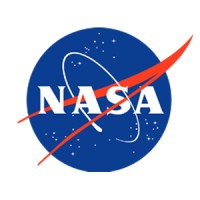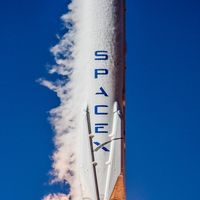Turbulent Times in Tech and Space: Durov's Arrest and Starliner's Uncrewed Return
August 28, 2024, 4:04 pm

Location: United States, Illinois, Chicago
Employees: 10001+
Founded date: 1916
Total raised: $25.01B

Location: United States, Maryland, Greenbelt
Employees: 10001+
Founded date: 1958
Total raised: $25.7B

Location: United States, District of Columbia, Washington
Employees: 5001-10000
Founded date: 2002
Total raised: $7.53B
The world of technology and space exploration is rife with drama. Recent events have shaken the foundations of both industries. Pavel Durov, the founder of Telegram, has been arrested in France. His detention stems from allegations of insufficient moderation on his platform. This incident has sent shockwaves through the cryptocurrency market, particularly affecting Toncoin, which plummeted by 15%. Meanwhile, NASA has made a pivotal decision regarding Boeing's Starliner spacecraft. The agency will return the spacecraft to Earth without its crew, prioritizing safety over risk. These two stories, while distinct, reflect the volatility and challenges faced in today's digital and aerospace landscapes.
Durov's arrest is a stark reminder of the fine line between innovation and regulation. Telegram has been a bastion of free speech, but it has also been a breeding ground for misinformation and illegal activities. French authorities have taken a hard stance, demanding accountability. Durov's refusal to cooperate has led to his arrest, igniting protests back in Russia. Supporters have rallied, leaving paper airplanes at the French embassy, a symbol of their discontent. The implications of this arrest extend beyond Durov himself. It raises questions about the responsibilities of tech leaders in moderating content on their platforms. The incident is a wake-up call for the tech industry. It underscores the need for better governance and accountability.
In the wake of Durov's arrest, the cryptocurrency market reacted swiftly. Toncoin's sharp decline reflects the market's sensitivity to news. Investors are wary. They know that regulatory actions can have far-reaching consequences. The cryptocurrency landscape is already fraught with uncertainty. Durov's situation adds another layer of complexity. It highlights the precarious balance between innovation and regulation in the digital age.
On the other side of the Atlantic, NASA is grappling with its own challenges. The agency has decided to bring Boeing's Starliner back to Earth without its crew. This decision stems from safety concerns following technical issues with the spacecraft. NASA's commitment to safety is commendable. The agency has opted to prioritize the well-being of its astronauts over the mission's timeline. This cautious approach is a testament to the inherent risks of space travel. Spaceflight is not for the faint of heart. It requires meticulous planning and execution.
The Starliner was designed to operate autonomously. It has already completed two uncrewed flights. However, recent helium leaks and thruster issues have raised red flags. NASA's decision to return the spacecraft uncrewed allows for further testing and data collection. This move is strategic. It ensures that when the Starliner is ready for crewed missions, it meets the highest safety standards.
NASA's Commercial Crew Program is a critical component of the agency's mission. It aims to provide safe and reliable transportation to the International Space Station (ISS). The decision to delay the crewed return of Starliner underscores the importance of thorough testing. NASA and Boeing are working diligently to address the spacecraft's issues. Their efforts will pave the way for future missions.
As the Starliner prepares for its uncrewed return, the Crew-9 mission looms on the horizon. Originally scheduled with four crew members, it will now launch no earlier than September 24. NASA is making adjustments to accommodate the changes. The agency's collaboration with SpaceX continues to evolve. The upcoming Crew-9 mission will be the ninth rotational flight to the ISS under NASA's Commercial Crew Program. This partnership is vital for maintaining a continuous human presence in space.
Both Durov's arrest and the Starliner's uncrewed return highlight the challenges of leadership in high-stakes environments. Durov faces scrutiny from regulators, while NASA navigates the complexities of space travel. Each story reflects the broader themes of accountability, safety, and the pursuit of innovation.
In the tech world, Durov's situation serves as a cautionary tale. It emphasizes the need for responsible leadership in an era of rapid change. The consequences of neglecting this responsibility can be severe. For NASA, the Starliner's uncrewed return is a reminder of the unpredictable nature of space exploration. The agency's commitment to safety is paramount. It ensures that future missions can proceed with confidence.
As we move forward, the lessons from these events will resonate. The tech industry must adapt to regulatory pressures. It must find ways to balance innovation with accountability. In the realm of space exploration, safety must always come first. The stakes are too high to do otherwise.
In conclusion, the arrest of Pavel Durov and NASA's decision regarding the Starliner are pivotal moments in their respective fields. They serve as reminders of the challenges faced by leaders in technology and space. As we navigate this complex landscape, the need for responsible governance and unwavering commitment to safety will be more crucial than ever. The future may be uncertain, but the lessons learned today will shape the path ahead.
Durov's arrest is a stark reminder of the fine line between innovation and regulation. Telegram has been a bastion of free speech, but it has also been a breeding ground for misinformation and illegal activities. French authorities have taken a hard stance, demanding accountability. Durov's refusal to cooperate has led to his arrest, igniting protests back in Russia. Supporters have rallied, leaving paper airplanes at the French embassy, a symbol of their discontent. The implications of this arrest extend beyond Durov himself. It raises questions about the responsibilities of tech leaders in moderating content on their platforms. The incident is a wake-up call for the tech industry. It underscores the need for better governance and accountability.
In the wake of Durov's arrest, the cryptocurrency market reacted swiftly. Toncoin's sharp decline reflects the market's sensitivity to news. Investors are wary. They know that regulatory actions can have far-reaching consequences. The cryptocurrency landscape is already fraught with uncertainty. Durov's situation adds another layer of complexity. It highlights the precarious balance between innovation and regulation in the digital age.
On the other side of the Atlantic, NASA is grappling with its own challenges. The agency has decided to bring Boeing's Starliner back to Earth without its crew. This decision stems from safety concerns following technical issues with the spacecraft. NASA's commitment to safety is commendable. The agency has opted to prioritize the well-being of its astronauts over the mission's timeline. This cautious approach is a testament to the inherent risks of space travel. Spaceflight is not for the faint of heart. It requires meticulous planning and execution.
The Starliner was designed to operate autonomously. It has already completed two uncrewed flights. However, recent helium leaks and thruster issues have raised red flags. NASA's decision to return the spacecraft uncrewed allows for further testing and data collection. This move is strategic. It ensures that when the Starliner is ready for crewed missions, it meets the highest safety standards.
NASA's Commercial Crew Program is a critical component of the agency's mission. It aims to provide safe and reliable transportation to the International Space Station (ISS). The decision to delay the crewed return of Starliner underscores the importance of thorough testing. NASA and Boeing are working diligently to address the spacecraft's issues. Their efforts will pave the way for future missions.
As the Starliner prepares for its uncrewed return, the Crew-9 mission looms on the horizon. Originally scheduled with four crew members, it will now launch no earlier than September 24. NASA is making adjustments to accommodate the changes. The agency's collaboration with SpaceX continues to evolve. The upcoming Crew-9 mission will be the ninth rotational flight to the ISS under NASA's Commercial Crew Program. This partnership is vital for maintaining a continuous human presence in space.
Both Durov's arrest and the Starliner's uncrewed return highlight the challenges of leadership in high-stakes environments. Durov faces scrutiny from regulators, while NASA navigates the complexities of space travel. Each story reflects the broader themes of accountability, safety, and the pursuit of innovation.
In the tech world, Durov's situation serves as a cautionary tale. It emphasizes the need for responsible leadership in an era of rapid change. The consequences of neglecting this responsibility can be severe. For NASA, the Starliner's uncrewed return is a reminder of the unpredictable nature of space exploration. The agency's commitment to safety is paramount. It ensures that future missions can proceed with confidence.
As we move forward, the lessons from these events will resonate. The tech industry must adapt to regulatory pressures. It must find ways to balance innovation with accountability. In the realm of space exploration, safety must always come first. The stakes are too high to do otherwise.
In conclusion, the arrest of Pavel Durov and NASA's decision regarding the Starliner are pivotal moments in their respective fields. They serve as reminders of the challenges faced by leaders in technology and space. As we navigate this complex landscape, the need for responsible governance and unwavering commitment to safety will be more crucial than ever. The future may be uncertain, but the lessons learned today will shape the path ahead.